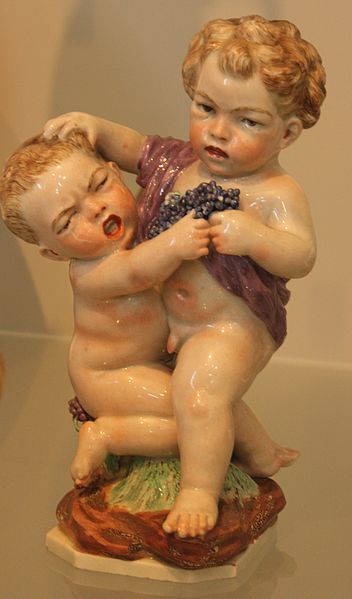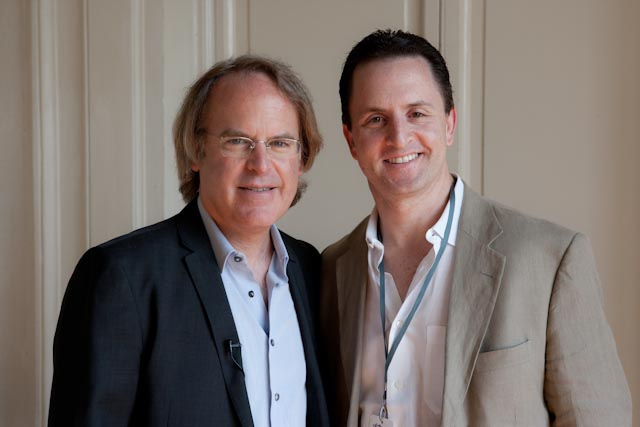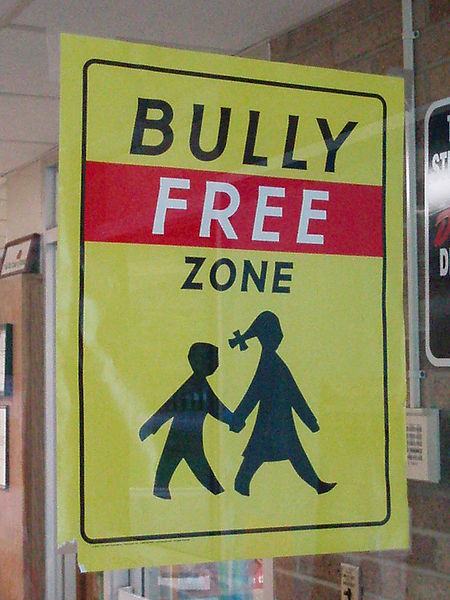Thankfully, the Pew Research Center has more important things to do than to figure out what the public thinks about wine writers. I fear that if they undertook the task, they would find that many people view wine writing with some degree of scorn.
And some of it would be deserved.
Think of the stereotypes: We drink wine without paying for it. We travel to beautiful places and eat the finest meals, probably all on someone else’s dime. It’s an easy, wonderful life.
And so it falls on all of us in the profession to make clear that ours is one of—yes, occasionally—perks, but also hard work. Some of us won’t take handouts or freebies. We value our objectivity. Our word is important, and we’re willing to be transparent with our readers. When there is a potential conflict of interest, we say so.
Yet here we are, watching two of the most well read names in our business acting like—in my opinion, anyway—bullies.
It’s a tough charge, I know, but consider that both Robert Parker and James Suckling have threatened to sue other writers simply because those writers took the time to uncover the apparent truth about their behavior. This is not just inside baseball; this affects all of us. It affects readers who lose faith in the top critics and writers. And it affects the entire field of wine writers, because some of those readers will extend their disapproval to all of our ilk, fairly or not.
Start with Parker. By now you probably know about the problems uncovered by British journalist Jim Budd last year; Budd did tireless work to bring to light how Parker’s team conducted itself in Spain, and it wasn’t pretty. One might think that Parker, alerted to some possible breeches of his own publication’s standards, would appreciate Budd’s work. Instead, Parker initially scoffed, essentially clearing his associates before any investigation. But much worse, Parker also threatened litigation against “these bloggers” who were working to tell an accurate story.
Parker was rattling a sabre, trying to shut Jim Budd up, along with anyone else who wanted to wade in on this matter. My Palate Press colleague Blake Gray pounced on Parker’s threat, noting the possible chilling effect. In fact, there is a legal term to what Parker appeared to be trying to do to Jim Budd. He was trying to slap Budd, or, more accurately, he was trying to SLAPP him. It’s an acronym that stands for Strategic Lawsuit Against Public Participation.
Most commonly, SLAPP lawsuits center on claims of defamation. The plaintiff often does not even expect to win, should a case proceed. The goal in SLAPPing someone is to push them around, convince them to stop talking, or writing. The cost of defending oneself can be so exorbitant that some defendants give up before they run out of cash.
But a SLAPP suit need not proceed very far to be effective. Often the simple threat of a lawsuit has the intended effect.
Keep in mind that it is very difficult to prove defamation in a court of law. Truth is an absolute defense, of course, and opinion is protected. However, the United States gives incentive to wealthy parties to threaten to sue—or to actually sue. That’s because in several dozen states, a party can sue for libel, and even if they lose, they don’t have to cover the legal fees for the defendant. That’s not the case in England, for example, where you’ve got to be much more certain of your case before you fire off a lawsuit. Otherwise, you’re paying not only your lawyer, but the lawyer of the person you wrongly accused of defaming you. Twenty-six states in the U.S. are attempting to curb such legal bullying with anti-SLAPP laws, but it’s inconsistent, and plaintiffs can forum shop until they find a favorable venue for such an action.
But let’s be realistic about this. Robert Parker was never going to sue Jim Budd. He was never going to sue anybody. After all, Budd did exhaustive journalistic work and laid it all out publicly.
And now James Suckling. The Suckling story is rather bizarre, considering that he seems to have brought this mess on himself. If you’ve missed it, last year Suckling went to Montreal to taste wines and compose some notes for both his own website and the website of the SAQ, a state-owned wine entity in Quebec. SAQ claimed at the time that Suckling “was not compensated to do the tastings.” And writing on his website, Suckling—unprompted—declared, “There is no financial relationship. It’s a sharing of information and contacts.”
You know where this is going. La Presse filed a Freedom of Information request and were told and reported that SAQ paid Suckling $18,000, while also purchasing 119 subscriptions to his website, totaling another $5,950. So Suckling had said there was no financial relationship while he was apparently being paid a total of nearly $24,000.
 Naturally, plenty of writers—and plenty of James Suckling’s readers—wanted to know what was going on. Starting with La Presse, then Dr. Vino and others, writers tried to contact Suckling for an explanation. Suckling’s twitter feed went dark for a while. He didn’t respond to emails.
Naturally, plenty of writers—and plenty of James Suckling’s readers—wanted to know what was going on. Starting with La Presse, then Dr. Vino and others, writers tried to contact Suckling for an explanation. Suckling’s twitter feed went dark for a while. He didn’t respond to emails.
Finally, on a forum on his website, Suckling responded to a reader by saying, “I never denied anything … I am considering libel action.”
Libel! James Suckling wants readers to believe he would sue a reporter simply because the reporter disclosed a financial relationship that Suckling denied existed.
Again, does anyone realistically believe that Suckling is going to sue? Nearly a week after La Presse‘s initial story, Decanter published Suckling’s defense: He’s a filmmaker! Yes, he was paid, but it was to create videos, not to taste the wines and rate them. Suckling also clarified that when he claimed there was no financial relationship, it was true … at the time. He just happened to sign the financial deal later, and failed to mention it to readers.
Already, some of his readers are coming to his defense. They say that a high-powered critic like Suckling would never visit lesser wine regions unless they were compensated in some way. I think that’s an awfully weak position to take, given the diversity of great wines out there, but let’s grant that point for a moment. Even if it’s reasonable for James Suckling to expect to get paid to visit lesser known regions, it’s also reasonable for his readers to know that. That way, a reader can decide whether to take Suckling’s reviews at face value, or to discount them based on the fact that he was paid for taking the time to review the wines. (Again, Suckling is now saying that he wasn’t paid to review the wines, only to make films.)
Suckling should apologize for making the same kind of threat that Robert Parker made to Jim Budd. And he should explain not just his behavior in this episode, but he should also explain how often he gets paid to make videos about wines or wineries that he visits, and whose wines he reviews. Put it all on the table. No one expects critics to work for free, but neither should critics get the benefit of the doubt on these matters. They should have a clear policy.
 We directed inquiries to Mr. Suckling, but did not receive a response in time for publication. We invite him to post his response in the comments below, and in particular we asked him:
We directed inquiries to Mr. Suckling, but did not receive a response in time for publication. We invite him to post his response in the comments below, and in particular we asked him:
In early 2011, you wrote that you had no financial relationship with SAQ, and I understand that it was accurate at the time. Why didn’t you amend that statement later in the year when you signed a deal and entered into a financial relationship with SAQ?
What other wineries, government entities, or tourism groups have you charged for the production of videos?
Budd told me that while he never expected Parker to follow through on his threat of litigation, he had to be careful and thorough. “I’m not blase about the prospect of being sued,” Budd explained. “Parker’s was not the first threat I have received, and I was confident that we had the evidence in the emails. Once I saw Parker’s threat to sue, I was very keen to respond as rapidly as possible on Jim’s Loire.”
Budd added, “I would have been surprised if he had carried out his threat, and I think that Parker’s handling of the affair has been appallingly inept.” Parker has not apologized to Budd.
How about this simple rule going forward: Don’t threaten to sue someone for libel. Either step up and file the suit and let the consequences fall where they may, or don’t. But trying to SLAPP people around because you don’t like the story is wrong, and if you SLAPP someone, you should expect to be punched back.
 Evan Dawson is a news anchor / reporter at the ABC News affiliate in Rochester, NY. He has reported on public policy and politics for more than 10 years. He is the Managing Editor of the New York Cork Report, as well as the author of the critically acclaimed Summer in a Glass: The Coming of Age of Winemaking in the Finger Lakes.
Evan Dawson is a news anchor / reporter at the ABC News affiliate in Rochester, NY. He has reported on public policy and politics for more than 10 years. He is the Managing Editor of the New York Cork Report, as well as the author of the critically acclaimed Summer in a Glass: The Coming of Age of Winemaking in the Finger Lakes.
